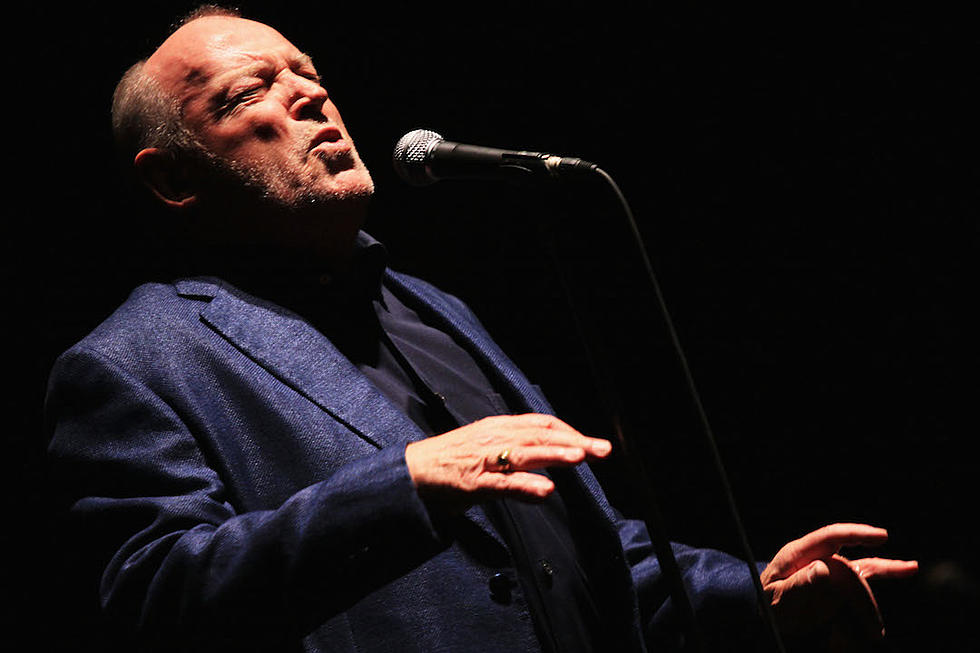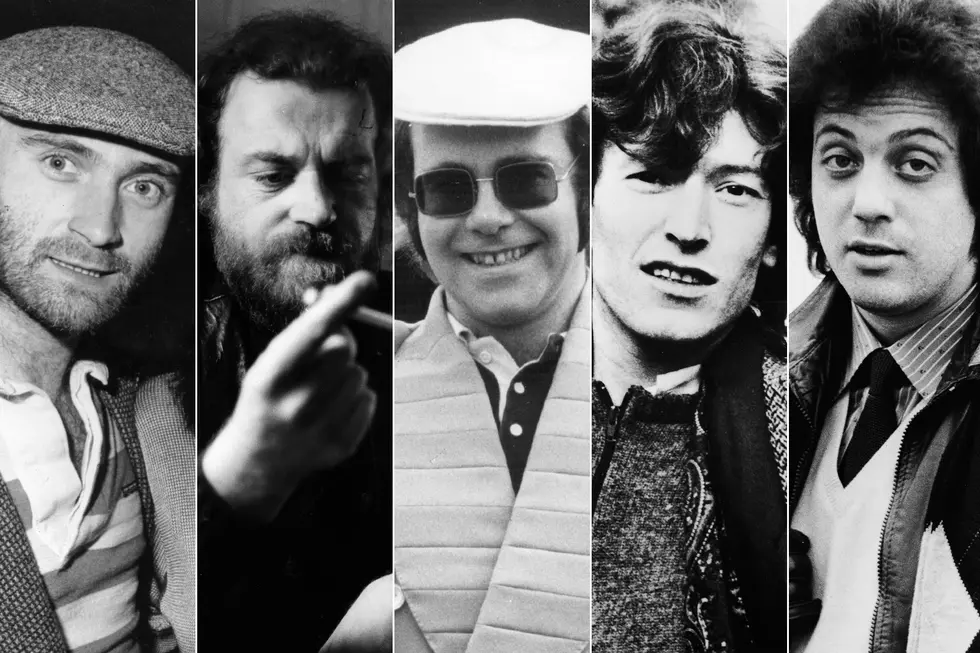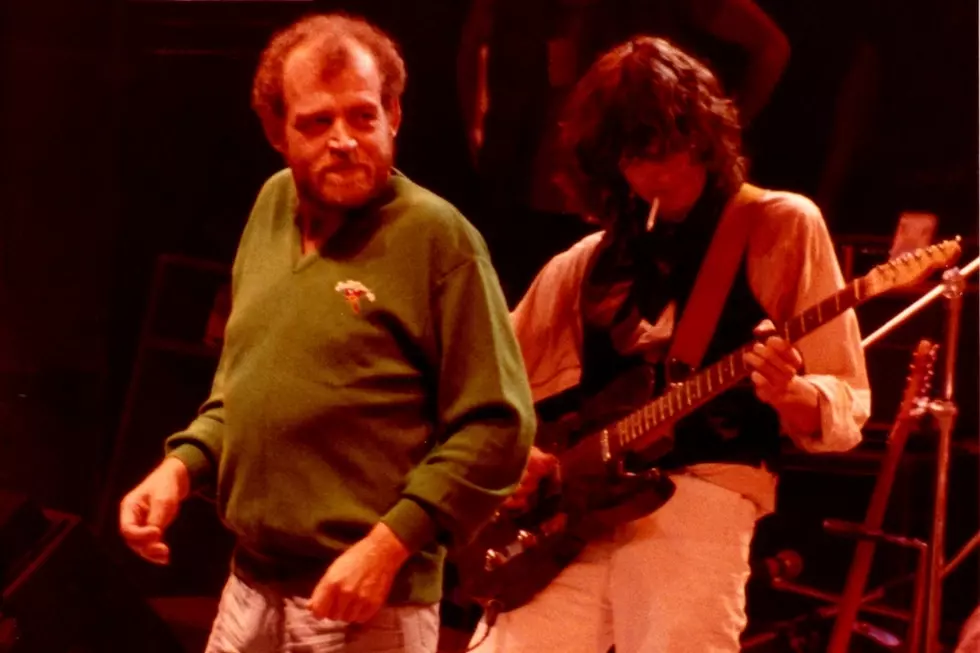
Top 10 Joe Cocker Songs
Though he came of age musically as a member of the Woodstock generation, Joe Cocker was one of the last of the great rock interpreters. He became most famous for what he did with others' words, even in an era that prized songwriting more than singing. And so, any list of top Joe Cocker songs necessarily includes tunes written by others. But Cocker chose well – there are catalog items here from the Beatles, Ray Charles, Billy Preston, the Animals and Traffic, among others – and then he often had the guts to radically rework them. Add in his famous gravel-gargling vocals, not to mention a few foot-stampingly loose jams from a series of ace sidemen, and Joe Cocker's audacious updates often actually superseded even the celebrated originals. Here are 10 of the best examples:
- 10
'Delta Lady'
From: 'Joe Cocker!' (1969)A No. 10 U.K. hit, "Delta Lady" was written by future touring partner Leon Russell and eventually took flight on the subsequent Mad Dogs and Englishmen, which found Russell joining a raucous rock-and-soul amalgam that also included several future members of Derek and the Dominos. By the time they were done with this song, it had become a searing cry for love – and almost, but not quite, the equal of Russell's version.
- 9
'Unchain My Heart'
From: 'Unchain My Heart' (1987)A long-awaited pass at one of Charles' signature songs, "Unchain My Heart" arrived too late to receive the definitive update it deserved from Cocker. Oh, he's in fine voice, singing with a sandpapered desperation. The rest of the track's instantly dated feel – from its airless cadence to its faceless riff to its pedantic sax – ends up keeping this song from going higher on our list, though. If there are times when this feels like listening to a genius trapped in a beer commercial, well, there's a reason for that.
- 8
'When the Night Comes'
From: 'One Night of Sin' (1989)This being the '80s, Cocker turns to period-specific songwriters in Diane Warren, Jim Vallance and Bryan Adams, completed here again with a sleek, modernized sound. Still, this No. 11 Billboard hit – Cocker's last Top 40 entry – showed that Cocker's distinctive bark could occasionally break through the gauzy production values of the era. Bonus points if you ID'd one-hit wonder Aldo Nova, of '"Fantasy" fame, on lead guitar.
- 7
'She Came in Through the Bathroom Window'
From: 'Joe Cocker!' (1969)Cocker goes back to the Beatles well for another tune following his U.K. chart-topping take on "With a Little Help From My Friends" of the year before (found later on our list of Top 10 Joe Cocker Songs). Predictably, "She Came in Through the Bathroom Window," which had just been released on Abbey Road, has slightly less impact – at least in the England, where it didn't chart at all. The tune actually became Cocker's highest-charting single at the time in the U.S., reaching No. 30.
- 6
'You Can Leave Your Hat On'
From: 'Cocker' (1986)Randy Newman's impish lyric is given a slyly salacious reading, earning Cocker a Top 40 hit on the mainstream rock charts. Still, as fun as it is, this brassy take on "Hat On" remains another rare instance where Cocker – though paired with some of the ace sidemen of the period like Richie Zito and Mike Baird – didn't quite outdo the original. Of course, there's no shame in that. Neither did the likes of Jerry Garcia and Three Dog Night, among many others. Credit Cocker for getting closer, and having much more fun with it.
- 5
'You Are So Beautiful'
From: 'I Can Stand a Little Rain' (1974)Featuring a brilliantly slowed-down arrangement courtesy of producer Jim Price, Preston's "You Are So Beautiful" became this impossibly gorgeous exploration of love's fragility in Cocker's hands. Every crack in his voice spiders up toward another underlying doubt. In a twist, Dennis Wilson of the Beach Boys later claimed co-authorship of the song.
- 4
'Don't Let Me Be Misunderstood'
From: 'With a Little Help from My Friends' (1969)Joe Cocker finds one of the better platforms for his anthemic, broken-hearted stylings on a song written by Nina Simone but best remembered via the 1965 hit version by the Animals. Back then, the leather-lunged Eric Burdon seemed to have crafted an edgy tribute for put-upon adolescence. By the time Cocker was through, it had been reborn as a very adult thing, this incautious lover's white-knuckled apology. Future Wings guitarist Henry McCullough provides the redemptive closing guitar. Cocker later redid this on 1996's Organic, but he couldn't best himself.
- 3
'The Letter'
From: 'Mad Dogs and Englishmen' (1970)'Cocker had similar success scuffing up the Box Tops' 1967 hit, giving it a darker complexity that wasn't there before. Of course, nobody was going to out-gruff Alex Chilton, even at that young age. But Cocker's tough orchestra adds grease-popping grit to a song that was originally hobbled by syrupy strings and even a needless airplane sound effect. And nobody can sound as anguished as Cocker at his best. This was his highest-ever charting U.S. single, until "You Are So Beautiful" streaked to No. 5 five years later.
- 2
'With a Little Help From My Friends'
From: 'With a Little Help From My Friends' (1968)Who knew there this much pathos to be found in a goofy little aside from the Beatles' Sgt. Pepper album? And it's not just Cocker's hurt-dog howl. "With a Little Help" was radically rearranged, with a lengthy instrumental passage that included asides from Jimmy Page and B.J. Wilson of Procol Harum. Longtime collaborator Chris Stainton is also on board. Cocker's take went to No. 1 in the U.K., and then became his most memorable moment from a career-making performance at Woodstock the next year.
- 1
'Feelin' Alright'
From: 'With a Little Help From My Friends' (1968)Cocker started by removing the question mark from the well-regarded Dave Mason original with Traffic. That was no accident. After all, Mason's original had been a ruminative thing. Cocker begins instead with this anticipatory piano figure before the song achieves an assertive, endlessly funky vista. And Cocker sounds like he couldn't be feeling better. That sent his version up the charts twice, first in 1969 and then again – finishing at a peak of No. 33 – in 1972.
More From Ultimate Classic Rock









